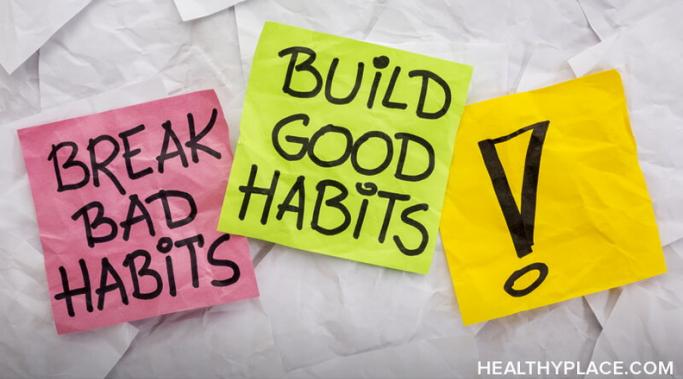Blogs
My husband, Tom, and I are celebrating our 15th wedding anniversary in September. He’s been very supportive of me in my struggle with schizoaffective disorder and anxiety every step of the way since we met. Today, I'd like to celebrate my husband.
For me, self-love is part of healing after verbal abuse. Individuals who experience verbal abuse may have low self-esteem, which can trickle into other areas of life. Without healthy confidence, people may neglect to care for themselves or regularly put themselves second to others. Understanding how to reintroduce healing self-care and self-love into your life can be challenging after breaking free from verbal abuse.
It's difficult to know the difference between introversion and social anxiety. When I was younger, I considered myself to be a shy person. However, I also knew I was an introvert and that I struggled with anxiety. Unfortunately, this also contributed to difficulties that I experienced in social situations and missing out on opportunities.
Recovery from addiction includes fear of the unknown, which creates skewed internal messaging. Challenging these feelings for validity is the best way to uncover their reason. After the haze of alcohol disappears, we face many complicated emotions, and our pesky brain will try to regress into old thinking. This skews whether these assumptions are valid -- all it takes is some self-evaluation to sort out which fears in recovery are false.
Creating a morning routine matters. Mornings can be tough when you have a mental illness. Warm covers, an hour of scrolling, and total denial of responsibilities used to be my go-to routine. While indulging in my escapism, I unknowingly set myself up for an unbalanced day. Now I've realized it's much harder to have a bad day when I've had a good morning, so building a healthy morning routine that helps my mental health has been essential in my recovery journey.
As I share the twists and turns of my descent into a gambling addiction and my mental health recovery journey, I am reminded of the mental turmoil I went through and how intrinsically connected mental wellbeing is to addiction.
Do you ever struggle to focus on work-related tasks because of bipolar disorder? A lack of focus and distractibility can occur in people who experience bipolar disorder and its episodes of mania and depression in bipolar disorder. These issues have affected my ability to learn and integrate new information and be efficient in executing important tasks. I have had to adapt new techniques to be successful at work and focus with bipolar disorder.
Moving forward to a life without verbal abuse can be challenging. It can be hard to break free from the abuser, find healthier relationships, and receive the love and respect you deserve. There is no designated timeframe to minimize the effects of verbal abuse in your life. Some people, like myself, go through years of therapy, while others may have an easier time with their healing journey to a life without verbal abuse.
Passive communication has been the silent killer of all of my friendships. While I've been developing my communication skills to create better long-lasting platonic and romantic relationships, I've learned how my communication style has been one of my greatest flaws. Passive communication is a style in which a person avoids expressing their thoughts, feelings, and needs. Passive communicators are unlikely to assert themselves and stand up for their rights. Friendships have come and gone, ending both ambiguously and anticlimactically, because I allowed them to pass by. By letting my fear of rejection and need to please others control me, I've done a great disservice to myself. Time and time again, I have held myself back from expressing my feelings and needs only to create great internal conflict, emotional distress, loneliness, and feeling unfulfilled in my relationships. That's the crux of passive communication.
Schizophrenia anxiety and anxiety can be intertwined with personality. When you have a severe mental illness, it is difficult to distinguish symptoms of that illness from your personality or life experiences (like upbringing, traumatic events, relationships, etc.). It can be hard to tell what is me and what is anxiety or schizophrenia. Some things are easy to pinpoint. For example, when I hear voices or become paranoid, it is clear that those are symptoms of schizophrenia. It is also easy to identify episodes of anxiety because that is so physically uncomfortable and obvious to me.










I'm sorry things are so hard. I know what that's like.
I can't tell you what to do, but I can tell you this: it took me a long time to find the best treatment for me -- and things still require tweaking. Moreover, it's unlikely that any one thing will work on its own for you. You likely need a combination of approaches like therapy and medication together. And remember, doing what you have always done will give you what you've always gotten. You can't change your brain on your own.
One thing I can say is, don't give up. Things can get better.
-- Natasha Tracy
I'm so sorry about how hard it is. I know what it's like to appear "fine" but be anything but. I also know how hard it is to ask for help.
I think when you're asking for support, the best thing to do is to think about what you want to say ahead of time and think, specifically, about how to explain what you're going through. You can then think about how to express yourself while not overly concerning the other person. (Keep in mind some concern is normal and unavoidable.)
For example, maybe you want to talk about being depressed. You might say something like, "I feel like everything is grey. Food tastes like sawdust. I feel like I'm never going to get better. I don't know what to do."
All those things are normal and okay. You might want to further express something like this, though, "I know my brain is lying to me about never getting better, but it feels very real."
The second part is important because it helps the other person put what you're saying into perspective.
Other people don't know what it's like to be in your brain, so try to explain it to them and explain how concerned they actually should be.
Finally, if you can't do the above, I understand. It's awful to have to take care of the other person while asking for help for yourself. That doesn't mean you still should ask, though. If they're concerned, then they're concerned, and that's okay.
-- Natasha Tracy
Thank you so much for reaching out to share this part of your story. From one twin to another, I am deeply sorry for the loss of your sister, and I can certainly understand the frustration, discomfort, and insecurities of feeling like your bodies were under constant scrutiny and comparison. I appreciate your vulnerability and willingness to share your insights and experience.
I now live a very depressed life, which is very isolating. I understand the feeling of not wanting to die, but also getting very worn out from living.
One day I want to seek help for myself, and the rest of the time I think it would be best to just soldier on alone.
I hate being such a disappointment to people, whether it's friends, family, or even the rare relationships I encounter.
I've tried medication in the past, I've tried counselling and support groups, I now think that nothing will help, especially not even my own ability to help myself.
If only you could just take whatever is wrong out of my head, as I really hate to think things are just going to get worse until life decides it's time for me to pass.
I appreciate your transparency and step by step ideas to survive as a single person.. Even though I suffer from Bipolar 1, I find that either end of the polar spectrum creates chaos in my life as well as friends and family. These are the more full blown manic times, where literally everyone who cares about me are dealing with hospitalization emergencies. While well , they assume everything is fine. Now is the deep depression where even leaving my house or getting out of bed are really hard. I am overwhelmed and my house is a mess. I do not communicate my depression to anyone but my therapist because I don’t want to make them worry. I’m worried myself because of the unpredictability of this disease.. I am too sad to cry and I’m practically having a panic attack thinking about going to work tomorrow. At any moment I could snap at one of my unlikable colleagues. Even though I need a paycheck, I’m also fully capable of quitting if anyone crosses me. The biggest frustration is that no one seems to understand. I appear normal on the outsides but inside, it can really suck. I’m going to listen to your podcasts and hopefully, you will cover more specifics on how to elicit support without causing panic…and who wants to be appointed this unpleasant job.